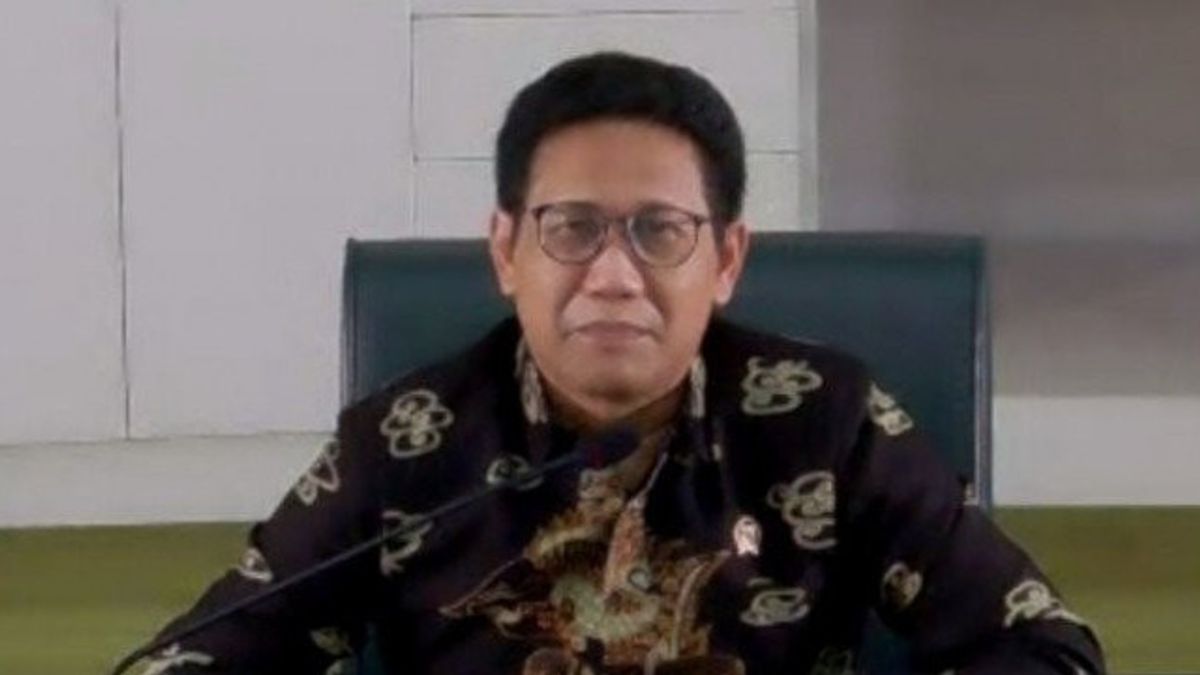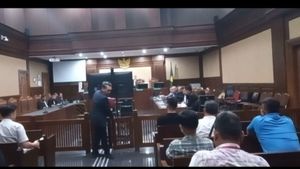JAKARTA - The Minister of Villages, Disadvantaged Areas and Transmigration (Mendes PDTT), Abdul Halim Iskandar, said the Job Creation Law (UU) is very beneficial for villagers who want to run their businesses in the village.
"The Job Creation Law provides convenience, protection and empowerment of BUMDes (Village-Owned Enterprises), cooperatives and Micro, Small and Medium Enterprises (MSMEs) to run businesses," said Mendes Halim in a press conference at the Ministry of PDTT Jakarta, reported by Antara, Thursday, 8 October.
In addition to facilitating and empowering BUMDes, the Job Creation Law also makes it easy to invest in villages. And all of that will have an impact on labor absorption and increase rural economic growth.
If labor absorption in the village is good, then economic growth, according to him, will be good, so that it can hinder urbanization.
"This is what we really hoped for from the start," said Mendes.
Thus, if urbanization is small, rural and urban areas will benefit equally, because not many villagers will come to the city to look for work.
Meanwhile, in addition to facilitating efforts to invest in villages, Article 109 of the Job Creation Law will also make it easier for BUMDes to establish individual limited liability companies.
"In Article 109 of the Job Creation Law, it is absolutely clear that the establishment of an individual limited liability company can be carried out by BUMDesa and UMK," said Mendes.
In addition, limited liability companies for MSEs are also given relief for the cost of establishing a legal entity, as stated in article 109 of the Job Creation Law.
As for Article 86 of the law, it also makes it easier to establish primary cooperatives with 9 members, no longer at least 20 people. And the primary cooperative can also carry out the principles of sharia business.
Furthermore, the Law also explains that the establishment of MSMEs can be carried out sufficiently through registration, there is no longer a need for permits, so that it is expected to be able to accelerate the growth of MSMEs in villages because they are not complicated by the licensing process.
Furthermore, MSMEs also get incentives in the form of being free of fees or given a reduction in business registration fees, as stated in Article 92. In addition, halal certification for MSEs is also free.
"So MSEs that will produce food and need halal certification will no longer be charged and free by the government. This means that the costs are borne by the government. That is stated in Article 48," said Gus Minister.
The English, Chinese, Japanese, Arabic, and French versions are automatically generated by the AI. So there may still be inaccuracies in translating, please always see Indonesian as our main language. (system supported by DigitalSiber.id)













